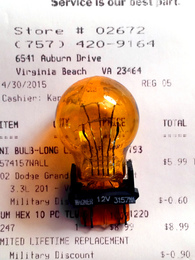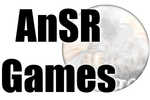|
A'n'SR -entertainments is making a new edition of our role-playing game, -U- the Game of Stories. As we do, we want to share some of (sometimes embarrassing) moments in the design. This week is the called "the time we ran an adventure and realized we don't run adventures that way!" How it Was So, when we first started writing adventures for the new -U- system, we thought about those great choose-your-path kind of books. The Game Narrator would read a block of text, pose a problem to the players, the players would react, and then (based on the outcome) the Game Narrator would move to the next Scene. The pros of this method are:
The cons of a scripted adventure are:
There are probably more of both, but those are the big ones that really came out in our playtests. The moment where it hit home was at the Geekway to the West game convention. The Moment First of all, if you have never been to Geekway to the West, it is a phenomenally fun and friendly game convention. It is geared very much towards playing games and having fun with friends, and had to cap attendance this year to 1300 people 2 months before the doors opened. Really great people. Really great convention. We brought one of our adventures (the fantasy one) to the convention to playtest. While running it, the players did some things that changed a part of the story. I know, shock, the players did something not in the script. So, I was reading this page of text to them at the beginning of the next event per the written adventure, and I literally had to stop. The text of the script did not match, in any way, what had happened in the game. I was able to recover only by jumping into the comfortable space that game narrators get into when they improvise. And that was the moment. That was where I realized that we had created something that was fun to write, but counter intuitive and broken for most narrators. If we were going to write a pick-your-path kind of book, it would be great. But this is role-playing, which is part improvisational acting, part rules, and part cooperative play. We had a great adventure, and I got lots of great feedback (and some ideas), At the end of the day, though, I just realized that our adventure we wrote was not going to work. It was kind of heartbreaking, really. All that work. All those words... gone. So... we had to fix it. The Fix So there we were with this great manuscript and a poor gaming experience. What did we do? Go back to the beginning. We analyzed how we really made our own adventures and what the best things were. We came up with some basics, and some conceits about what we like in our games.
Looking at all this, we completely rewrote our fantasy adventure. We thought about co-operative RPG game play (where everyone takes turns being a Game Narrator at one point), but that fell flat. Instead, we just concentrated on organizing adventures in chunks called Scenes with some possible Events that might happen in each Scene. Inside those Events we had a description (which could be read aloud, if the Game Narrator wants to), an action, some facts, and some possible next Events. This worked much better. The flow of the story was kept inside the Scenes and moved through actionable Events. Cool character moments were available to the players and Game Narrators that the scripted version prohibited. We even put in possible Events for some interactions with the Game Narrator Characters that we felt really fleshed them out (like interrogating an ally that may or may not be a villain). All-in-all, the adventure was better and was written in less words. We are rewriting the Angels adventure/book now. Next Time...Next time, we talk about random thoughts we've had lately about RPGs and more.
Comments are closed.
|
Archives
January 2023
|

 RSS Feed
RSS Feed
